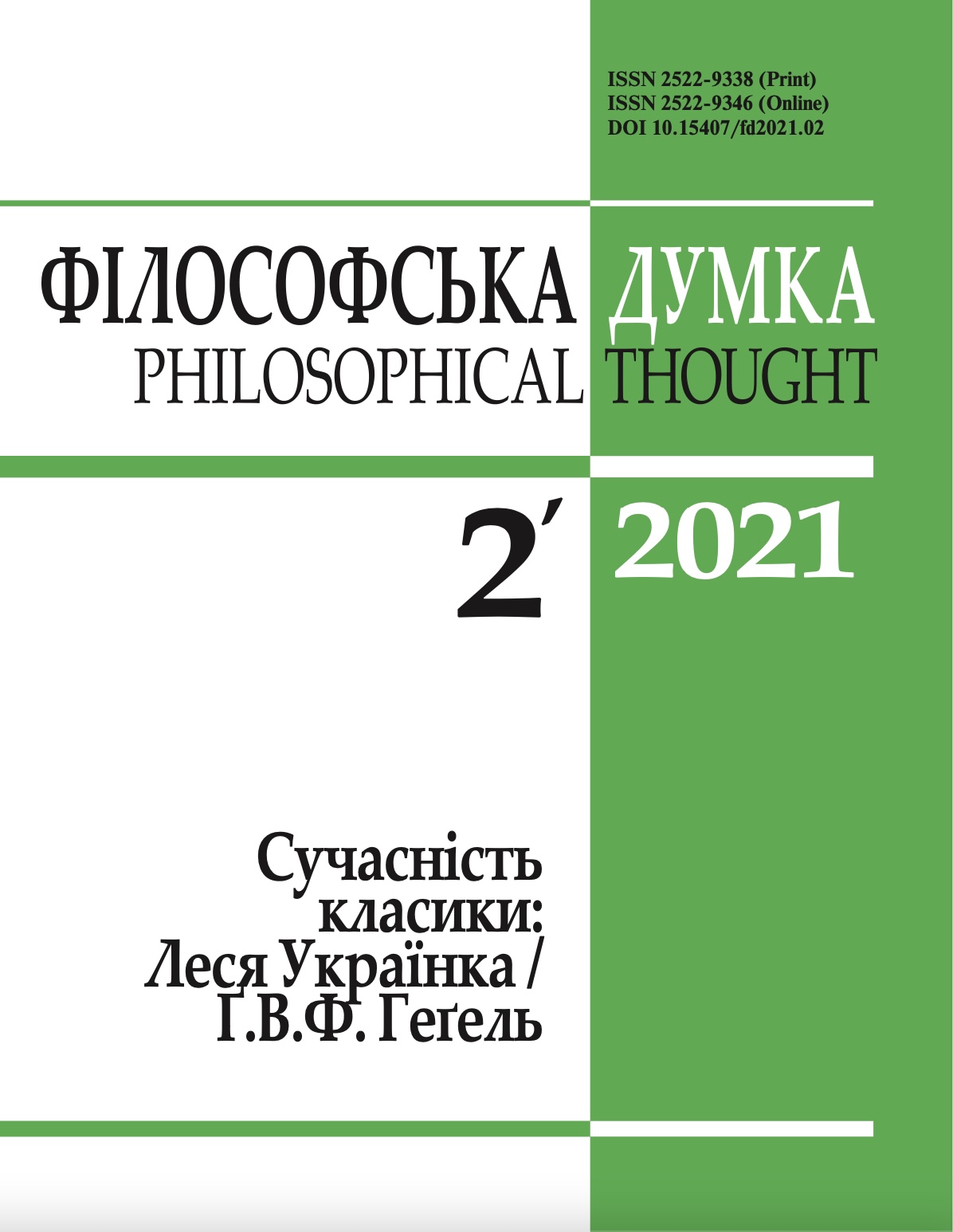ABOUT BENEFITS AND HARMS OF REWRITING HISTORY. ONE OF THE TOPICS OF CONTEMPORARY HISTORICAL DISCOURSES: PHILOSOPHICAL ANALYSIS
DOI:
https://doi.org/10.15407/fd2021.02.142Keywords:
historical experience, historical policy, memorial law, historical discourse, narrative, collective memoryAbstract
When we talk about historical revisionism, negative connotations as a rule are prevailing. Prohibition of revision of certain historical interpretation and assessment is one of the tasks of historical policy which is carried out by adopting so-called «memorial laws». Taking care of the formation of the desired representations of the past (narratives) is directly related to the interests of institutionalized power in its own stabilization and strengthening. Power is a function of the community, whose identity is formed historically. Consolidation of collective identity through the support and repro- duction of common representations of the past is one of the tools to strengthen power.
At the same time, the very nature of human experience acquisition which is permanent mediation of the horizon of the past and the present, presuppose a reinterpretation of this past. Major shifts in the experience of generations, which occur as a result of certain social changes, lead to a new look at the past of the community. In this sense, rethinking and rewriting history becomes necessary to clarify, update, rationalize the collective identity, which is problematized by new experience.
Historical policy can both respond to this need for identity transformation through re- thinking representations of one’s own past and come into conflict with it. In the latter case, the narratives transferring by institutional power begin to conflict with the communicative memory of the generation experiencing a shift. One of the tools of self-preservation of power in this situ- ation is blocking of living historical experience, which can take various forms. The culmination of such a blockade is «hermetization» of historical time that take place in totalitarian state. The living historicity of experience, which requires a constant rethinking of one’s own historically inherited identity, is replaced by an artificial, time-frozen identity, which, precisely because of this nature, becomes fragile and doomed to destruction.
On the other hand, the rewriting of history initiated by the authorities within the framework of historical policy may face resistance to the representations of the past rooted in the commu- nicative and cultural memory. The resistance of historical narratives indicates that the collective memory and the identity founded in it are not only a power construct, but also a spontaneous layering of sediments of historical experience.
In today’s world of global communications and unified everyday practices, historical narra- tives are beginning to play an increasing role, as they remain the only seat of identity. At the same time, this process reinforces the conflict potential of communities, which can be observed in many examples of the revival of historically motivated political ambitions. In this situation, a critical clarification of various interpretations of the past becomes a means of rationalizing the historically inherited identity of communities as a necessary condition for intercultural dialogue.
References
Anderson, B. (2006). Imagined Communities. Reflections on the Origin and Spread of Nationalism. [in English]. London, New York: Verso.
Arendt, H. (2006). On Violence. [in English]. San Diego, New York, London: A Harvest/HBJ Book; Harcourt Brace Jovanovich, Publishers.
Assman, J. (2011). Cultural Memory and Early Civilization. Writing, Rememberance, and Political Imagination. Cambridge University Press.
https://doi.org/10.1017/CBO9780511996306
Assman, J. (2013). Communicative and Cultural Memory. In: The theoretical foundations of Hun- garian "lieux de memoire" studies (Loci Memoriae Hungaricae 1) (pp. 36-43). S.l: s.a.
Foucault, M. (1997). «Il Faut Defendre la Societe». Cours au College de France. 1976. Seule/Gal- limard.
Kasianov, G. Historical policy and the memorial lows in Ukraine: the beginning of the 21st cen- tury. [In Russian]. Historical expertise, 2, 28-55.
Kasianov, G. (2019). Ukraine and neighbors: historical policy. 1987-2018. [In Russian]. Moscow: NLO.
Koselleck, R. (2006). Zeitschichten. Studien zur Historik. [In Ukrainian]. Kyiv: Duch i litera.
Megill, A. (1998). History, memory, identity. History of the Human Sciences, 11(3), 37-62. Megill, A. (2007). Historical Knowledge, Historical Error. A contemporary guide to practice. Chicago, London: The University of Chicago Press.
Olik, J.K. (2018). Collective memory: two cultures [In Russian]. The Historical Expertise, 4, 22-49.
https://doi.org/10.31754/2409-6105-2018-4-22-49
Orlova, I.B. (2017). Historical Knowledge as a Subject of Sociological Analysis (Phenomenological Aspect). [In Russian]. Sociological researches, 9, 66-77.
Renan, E. (1882). Qu'Est-Ce Qu'Une Nation? [in Franch]. In: Conference faite en Sorbonne, le 11 Mars 1882 (pp. 1-30). Paris: Ancienne Maison Michel Levy Freres.
Zymovets, R.V. (2002). Foucault/Habermas discussion. The power theory issues. [In Russian]. Practical philosophy, 1, 82-104.
Downloads
-
PDF (Українська)
Downloads: 287
Published
How to Cite
Issue
Section
License
Authors who publish with this journal agree to the following terms:
- Authors retain copyright and grant the journal right of first publication.
- Authors are able to enter into separate, additional contractual arrangements for the non-exclusive distribution of the journal's published version of the work (e.g., post it to an institutional repository or publish it in a book), with an acknowledgement of its initial publication in this journal.
- Authors are permitted and encouraged to post their work online (e.g., in institutional repositories or on their website) prior to and during the submission process, as it can lead to productive exchanges, as well as earlier and greater citation of published work (See The Effect of Open Access).


